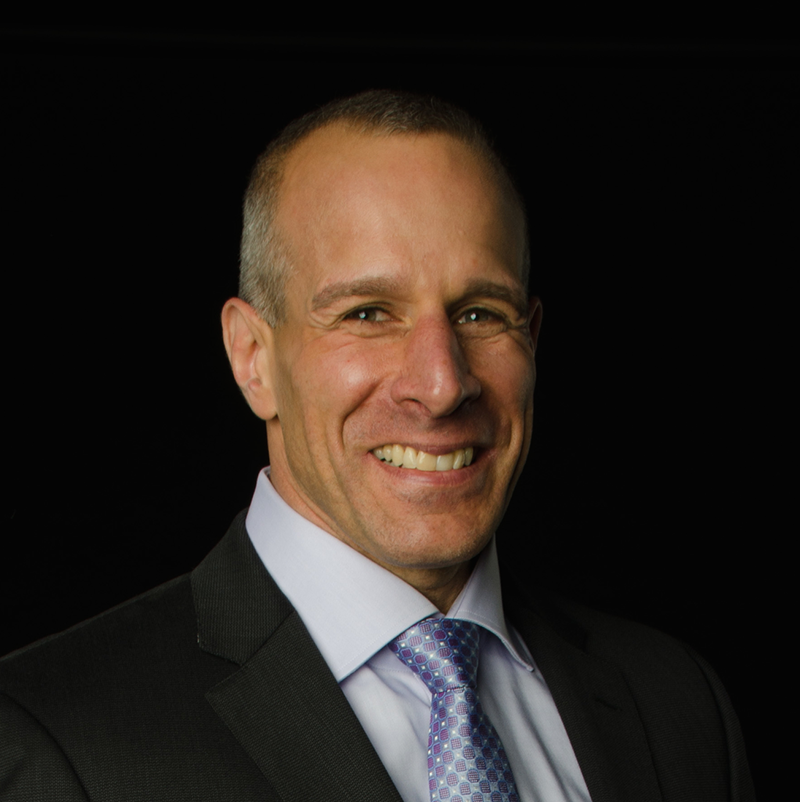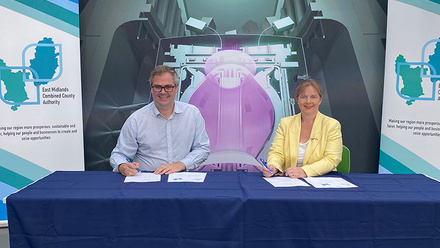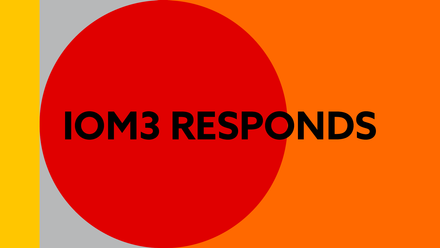Taking the next step in your career - career coaching examined
LinkedIn is flooded with career coaches and enlisting a professional to guide you through the next steps in your career is becoming more commonplace. But what do they do?

Materials World catches up with Dr Josh Henkin, Founder and Career Coach at STEM Career Services, to find out more.
How did you get into career coaching specifically in STEM?
It was never my dream or goal to be a career coach. As a hiring manager for STEM-trained individuals, I found myself getting frustrated with how poorly candidates interviewed and wrote resumes for positions at my company. I thought to myself, “here is a problem that I can solve”.
I started speaking at local events about what a hiring manager looks for when hiring STEM candidates. To my surprise, attendees would be lined up 20-30 deep afterwards wanting to talk with me.
This led to more invitations to speak about career development for STEM graduates at universities and science society meetings. Soon after, I was elected to serve on the Board of Directors for the [US] National Postdoctoral Association (NPA). Then I was asked to be a subject matter expert for the American Association for the Advancement of Science (AAAS) Career Development Center (CDC), AAAS Science Careers, and earned the role of career coach for the AAAS Science and Technology Policy Fellowship Program. I created several online career development courses for the CDC and deliver workshops and panel discussions at AAAS conferences and events.
Presently, I deliver about 30 invited speaking engagements per year at various universities, science institutes, national labs and science society meetings, and have a fairly robust coaching practice.
What does a career coach do?
A career coach provides guidance, support and motivation to a client, while also sharing their expertise in workplace dynamics, career exploration and the job search process. A good coach does not do the work for a client (e.g. write a resume), but rather guides the client through various processes to learn about themselves and how to apply that knowledge to their individual job search.
Today’s job seeker will have many different jobs in their careers and thus will go through the job search process numerous times. 2020 data from the US Bureau of Labor and Statistics states that 4.1 years is the average duration a worker will remain with one employer. If you are a new graduate or recently entering the workforce, you have a long life ahead of you with numerous opportunities to change careers, grow in your career, and take on new and interesting work. It is possible to learn a framework for career development success that can be repeated over and over throughout your careers.
What makes a good coach?
A good career coach can accelerate the process of finding a job. More importantly, a good career coach can help a client find the ‘right’ job, not just their next job, to increase the likelihood that the job they get is one that will be challenging, rewarding and satisfying. This investment up front will pay dividends in the long run.
There are some general topics coaches can help with. These include how to develop a strong resume, how to interpret and break down a job description into the desired skills sought by employers, drafting meaningful cover letters, how to prepare for an interview, compensation negotiation, using LinkedIn as a tool for effective job searching, networking, recruitment, and for doing due diligence on companies as you explore careers and prepare for interviews. This is a partial list, but an experienced career coach can do much, much more.
A skilled coach can also help clients identify and understand their unique skills and value to an employer. Learning how to articulate and communicate those skills to others via a resume, LinkedIn profile, while networking, or while interviewing for a position is critical to career success.
I have also started to help my clients prepare for their performance evaluations once I’ve helped them find jobs. As their career coach, I already know so much about them and how they work. I now can guide them through their performance reviews and help them showcase what they have accomplished in their jobs and why they should be acknowledged and rewarded for that work.
What are the most common challenges in navigating a career change/job search in STEM?
Many people are not taught the necessary skills to navigate the career development and job search process. At career development workshops at universities, institutes and science society meetings, I’ll start by asking everyone to raise their hand if they’ve taken a semester-long science course. All the hands in the room shoot high in the air. Then I’ll ask them to keep their hands raised if they feel confident about the science knowledge they’ve gained. 95%+ hands will remain held up. Then, I ask them to keep their hands raised if they’ve ever taken a semester-long course in career development, or resume writing, or identifying their professional goals. In the years of coaching and tens of thousands of people I’ve spoken to, less than 10 have kept their hands up for that last question.
STEM graduates are frequently highly skilled in their technical disciplines, but commonly are not taught how to navigate their careers effectively. I wasn’t taught this either. It took becoming a hiring manager and interviewing candidates for STEM-related roles for me to realise how poorly prepared candidates are at drafting resumes, interviewing and applying for jobs. And this led me to dig deeper and understand the problem more.
Anyone can find a resume online and try to follow the same format, but that doesn’t mean the resume is going to communicate their unique skills and value to an employer. Or be effectively tailored to the job description.
In addition, the job market and career landscape are dynamic. For example, there have been some dramatic shifts in hiring practices due to the pandemic. The quicker candidates respond to that, the better prepared they will be to get jobs.
I have also found STEM-trained individuals often rely on their technical skills and want to emphasise them in their job search. Technical skills are important, but not at the cost of transferable skills (often called soft skills). In nearly every technical job today, transferable skills are important and critical for success. You need to be able to build relationships, communicate effectively and manage projects just to name a few.
STEM-trained individuals often possess a wide variety of both technical and transferable skills, and a good coach will encourage them to understand the importance of both, and how they can showcase them both effectively in the job search process.
What does the process of coaching look like from A to Z?
I imagine every career coach has their own unique approach to career coaching. My approach is to get to know my clients and help them get to know themselves better as a first step. We go through some exercises to understand what their skills are, what is the evidence that they are effective at those skills and why are they effective at those skills. Understanding this sounds easy, but it is a complex process that requires self-reflection on the part of the client. Most of my clients have never asked themselves “why am I effective at a particular skill?” However, once a client can answer those questions, their confidence grows exponentially, and it provides the foundation for developing a resume or preparing for an interview.
A good coach doesn’t do the work of the client. Instead, they ask questions, provide a structure for learning and have tools available for a client to explore themselves and their career interests. Since I also have experience as a hiring manager, I can serve as a mirror for the client to see how they might be viewed by a hiring manager in the company they want to apply to. I can provide critical feedback to help my clients improve their interview skills and objectively discuss how they come across on paper and in person for that role.
A good coach will interact with a client in a manner that suits the client, not the coach. I want to match their learning styles and find the type of coaching that they will respond to best.
Having clear goals and outcomes is critical to set expectations for the work to be performed. It is important to establish the client’s goals at the onset of the coaching relationship so both parties know what is to be expected and when success has been achieved. These goals should be reasonable and assign accountability appropriately. For example, as a coach, I am not the one interviewing for a job, my client is. I can help them prepare and I can give them advice and structure for how to address interview questions, but they must perform on the spot. I often make the analogy that a football coach is not the one on the field playing the game. The players are. The coach can set up a game plan and scout the opposing team and help the team prepare, but ultimately, it is the players on the field that must win the game. Just like it is the client who must perform well at the interview and get the job offer.
What is the difference between a career coach and a mentor?
Having mentors throughout one’s career is essential. They play an important role and can be instrumental in nurturing and guiding someone’s career. It’s possible that a mentor might have broad knowledge and can serve many of the career coaching functions described above in this article. However, that coaching role is not inherent to the mentor-mentee relationship.
There are many implicit roles between mentors and mentees and very explicit roles between coaches and clients. With coaching, a client is paying for a service. Thus, a client will hold a coach to a different set of expectations than a mentor. And a coach will hold a client to a different set of expectations than a mentor will for a mentee.
Three top tips for taking the next step in your career
- Know your skills and be able to clearly articulate them to someone who has never met you before.
- Explore career options as early as possible. Test them out during your academic training if possible (via internships, part-time jobs, volunteer, etc) to gain relevant skills, build your network and to determine if this career path truly is the right fit for you.
- Learn to network effectively and grow your network in the industries and organisations that you believe you might want to work.







